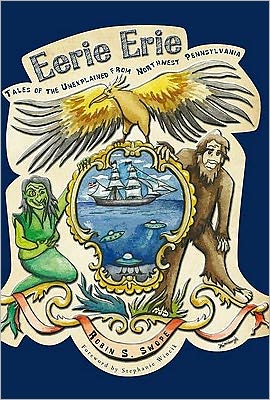
Generational tales that are passed down from family member to family member over the decades can be very interesting. They also can be greatly exaggerated.
Take my family with the tales of my maternal grandfathers adventures as a rum runner and moonshiner during prohibition and his subsequent death at age 96 from bad shine he brewed in his still. I heard the stories over and over as I grew up, only to find out later in life that they were all untrue. Of course dying quietly of old age in a nursing home is not as adventurous a yarn as an ancient moonshiner dying by his still, but such is life.
Then again a humble old story can become a great adventure when the truth comes clear through the decades. Long has there been rumors in my family of “an ancestor who was granted land in
Sometimes family stories are steeped in myth, other times they are only portions of a bigger truth that can be quite startling. Consider this old story passed down from the turn of the last century, told to me by an elderly gentleman this summer, dear reader. Of which type is it? You decide.
The Macchovi family had owned the carriage works for generations when they converted it to an automobile garage after World War 1. They transformed the large two story store room into the main bay for repairs and the old assembly area into the parts room to accommodate more vehicles being worked on at the same time. The large old store room was quite cold in the winter time, but in summer its spacious layout with two double doors on both ends and high ceiling made for a comfortable work area. During the summer days the bay was constantly a buzz with the chirping birds that nested in the buildings high wooden rafters. The bird were mostly small sparrows and while the noise was bearable, the constant droppings coating customers cars was not. Ever since the building renovation Uncle Marcel Macchovi had tried to rid the bay of the nuisance of the sparrows. He had tried shooting them, but instead of being rid of his trouble, he added onto them by shooting holes into the ceiling. He tried smoking them out, but the birds would only leave and return when the smoke had cleared. Barn cats were also ineffective, only able to catch a few birds a week of the multitude that called the shop home.
For years Marcel put up with the bird bombing, until one late summer day it abruptly stopped.
The crew didn’t notice the silence in the auto bay until almost
The pile was enormous. Marcel judged that not only were all the sparrows from the shop in the heap, many other birds were put there as well. The strangest thing was that they had no discernible injuries. No bullet holes, cuts, bites or any mark upon them. They were just dead. Many with their eyes open.
It was as their lives were just sucked from them. The bodies were in no ways molested, not a broken bone in the bunch.
It was very odd. Nobody had ever seen anything like it. But they shook it off and continued their busy day. They had almost forgotten it until a week later when they heard the neighboring farmers complain about the mass death of their chickens. The cages chicken coops themselves were undamaged, however when the farmers had entered them, all the chickens were dead and in a pile on the floor of the coop. Like the wild birds, they had no marks upon them. They had all suddenly died and mysteriously gathered in a heap.
A local Veterinarian was called to inspect the birds, but he too could not find a cause of death. There were no outward sign of disease, but would have diagnosed an avian virus if it were not for the bodies being piled up in a single heap. Someone was playing a trick, or the farmers had an unknown enemy, he surmised.
In response the local farmers stepped up their efforts to protect their livestock; both those who lost their fowl as well as those that had no attack. Guard dogs were purchased along with an increased patrol of watchmen pooled from a combined force of work hands who were good with a gun.
Three days later, the guard dogs on all the farms started to make a commotion during the night and as the watchmen came upon the nearest farm, the guard dogs were nowhere in sight, this happened on each farm they investigated that night. They were found the next morning in the middle of a large cornfield. The pile contained all manner of outdoor animals. From wandering house cat to coyote and even a few cougars. It baffled everyone.
Mrs. Rowse lived next to the Macchovi garage, she was a cat lover with a house full of them. When they all disappeared she called upon Marcel for help, he told her the bad news and she took it quite hard. Her countenance changed at the news, and never was the same again. She quietly made her way home, silently sobbing into her handkerchief.
Marcel went to console his neighbor on the next day, but she did not answer. He visited again the next day and once again Mrs. Rowse did not answer, he stayed a while and heard not a rustle in the house, banging on both the front and back door and with desperation a knock on the front window. On the third day Marcel was walking along the creek which was a shortcut to the Rowse house, avoiding the turn in the road connecting the properties, when he heard a noise on the other side of the creek above the small cliff side. It was a rustling in the bushes with a raspy breathing. Something was moving along the other side of the creek very slowly. Marcel unsheathed his knife, a large hunting knife he carried on the inside of his boot, carried for situations quite like this.
He quickly and quietly hopped the shale rock to the other side of the creek near the noise. He jumped up the little outcrop with knife drawn to see shat was making the noise.
It was Mrs. Rowse, lying in a little dip in the hill across a path. With a heavy breath her body moved by itself down across the dip. It was if she was being dragged without her body being affected by the woodland floor. She was floating there moving with each deep breath as if upon an invisible blanket.
Marcel jumped across the path to other side and was almost within arms reach of the woman when the sunlight reflected something unnatural.
It was if she were enveloped by a bubble that glistened in the light. A movement to or fro and the bubble vanished from sight. But at a certain angle the sun showed the bubble, heaving as the old woman breathed and dragged her inside of it’s unseen mass.
Marcel approached and poked at the bubble with the point of his blade.
There was a movement of sorts within the bubble, it swelled and became clear to see in the angle of his vision. He saw the movement form into a bulbous blur on the bubble, as if it had a giant zit that was to pop. Then the bulge on the bubble opened.
It was an eye.
An ungodly visage that manifest itself upon the gelatinous form focused its ethereal iris toward Marcel. And so he struck again at the iris.
He told his crew chief later that it was if the thing was real, but not. It was halfway into this world and that with a lucky shot he hit the thing at its weakest point and the thing squealed and faded away. Mrs. Rowse let loose one large sigh and passed on. The county coroner ruled that she died of lung disease because of smoking.
Marcel never knew her to be a smoker.
At the funeral service Marcel left unexpectedly. His chief followed after him and saw Uncle Marcel shoot himself in the head in the backyard of the funeral home. They were in the middle of the chorus of an old gospel hymn that Mrs. Rowse had loved all her life. The chorus to the song, “His Eye is on the Sparrow” is,
“I sing because I'm happy,
I sing because I'm free,
His eye is on the sparrow,
And I know He watches me
His eye is on the sparrow
And I know he watches me.”
The strange deaths stopped after Marcel’s suicide.
It is quite an odd tale, you be the judge. Did Uncle Marcel see something in the woods or was it all in his mind?
Was it some transdimensional life draining creature, or a demon from the pit of hell?
To me, the monster reminded me of a creature from the old 1960s cartoon “Johnny Quest”. That knife must have had a fine tip; I want one.
Until Next Time,
Pastor Swope











